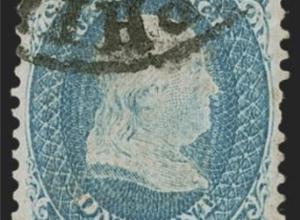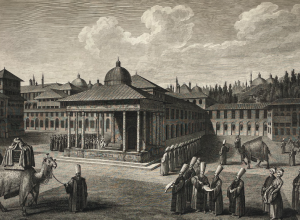A Baseball Card Story
There's a brand new book out there irresistibly titled Cardboard Gods: An All-American Tale Told Through Baseball Cards by Josh Wilker that is getting some terrific reviews. When my copy arrives, I'll offer a considered response, though I have to say out front that it has all the earmarks of being my kind of book, combining as it apparently does a number of elements that resonate with so many of my own interests, not least among them the continuing splendor of our national pastime, baseball, and the idea that collecting is a metaphor for life itself.
But in the meantime, I'd like to share a baseball card story of my own, and the best part is that it isn't one that has mellowed over the many decades since I, too, hoarded these marvelous little objects that so evocatively define a certain time and place, but one that came my way a mere two months ago during a trip my wife and I made to Mississippi, and which I wrote about in my most recent online column for Fine Books & Collections.
Since length was an issue in that article--and since the topic at hand was the literary tour we had just completed--one detail I did not mention in the piece was a wonderful conversation Connie and I had one morning over breakfast with Jim Miles, the personable gentleman who so capably drove our bus from town to town throughout the Mississippi Delta over the three days of the tour. A tall, broad-shouldered, athletic man with a rock solid handshake--and clearly someone, to my eye, who had participated in organized sports back in the day--Jim smiled when I teasingly asked what position he had played as a youngster, linebacker or tackle. "Well, I did play a little football in high school," he said amiably, "but baseball was my sport."
And thus began the following tale:
A native of Batesville, Mississippi, Jim grew up on a farm harboring a dream like so many millions of other American boys that he might one day play in the big leagues, and he became fairly adept at throwing tattered old baseballs wrapped in electrician's tape at targets he had drawn on the side of the family barn. "This was hard-core St. Louis Cardinals territory back then, but my favorite team was always the New York Yankees, because they won all the time," he recalled in his easy Southern drawl. "I threw pitch after pitch at that barn, and in the game I always played in my head, it usually came down to me against Mickey Mantle in the bottom half of the ninth inning with the World Series on the line. And the way it always played out was that Mickey Mantle would hit a grand slam off me to win the game, and the series."
Pretty odd, I thought, that he didn't whiff Mantle in his imaginary confrontation, he served up what amounted to a gopher ball. "He was my hero," Miles explained unapologetically. "To my way of thinking, it would have been an honor to just pitch against him."
So now we jump ahead to the 1960s; James Charlie Miles, Jr. is a star right-handed pitcher with Delta State University, and he signs as a free agent with the Washington Senators organization. He bangs around the minor leagues for a couple of years, moves from farm team to farm team, and then one day in 1968 he is told to get on a bus and join the parent team, which was in dire need of some fresh relief pitching to help what was, historically, a club that had earned the reputation for its city as always being "first in war, first in peace, and last in the American League."
Jim appeared in just three games that year in the majors, ut one of them was played in New York City, where the young man had never been before in his life. "When I came out of the runway into Yankee Stadium, and looked around, I was dizzy with excitement," he said, and he recalled going to Monument Park in the outfield to pay his respects at the plaques honoring Babe Ruth and Lou Gehrig before the game got underway. He passed most of the contest uneventfully in the bullpen, but in the top of the sixth word came from the dugout that he should warm up and get ready to pitch the bottom half of the inning.
The Senators, typically, were behind, so there was little drama involved in the outcome. But it was an opportunity for Miles to show what he had, and he wasted little time getting two men out. "Then one thing led to another," he said, and before he knew it the bases were loaded, with none other than Number 7 himself, Mickey Mantle, then playing in what would be the final year of his illustrious career, due up next. A switch-hitter, Mantle stepped into the batter's box from the left side of the plate, where his power was greatest, and focused his attention on the lanky right-hander standing 60 feet, 6 inches away.
"I had a sneaky little fast ball that tailed away from left-handed hitters," Miles said, and he quickly got ahead in the count, no balls and two strikes--but not without suffering through two monster swings that seemed to take the air out of the park. "So here I am ahead in the count, and I figure I'll try this tricky little pitch of mine, a Luis Tiant kind of twirl I had developed where I have my back to the plate for an instant before releasing the ball. I admit I was probably being a little too cute for my own good, and when I let it go I could see it was heading right down the middle of the plate, exactly where I didn't want it to be."
It was a grooved pitch, in other words, right in the Mick's wheelhouse, but the funny motion, in all likelihood, caused the slugger to flinch momentarily and lay off the ball--which the umpire shockingly called strike three. "Well let me tell you I floated off the mound into the dugout," Miles said, and it was the only time he would ever face Mantle. He returned to the Senators the following year, played for the legendary Ted Williams, pitched in a dozen games, then retired at season's end after suffering a career-ending injury. He would spend many years in Mississippi as a coach and athletic director at a local college, winning a number of divisional championships, all the while rich in the memory that he'd had a once-in-a-lifetime moment in Yankee Stadium, living out a boyhood fantasy in ways that he could have never foreseen.
As luck would have it, Jim had an extra baseball card along with him in the bus, which I was honored to accept as a gift. It's a Tops 154 rookie card, issued in 1970--Miles was still technically a rookie in 1969--and features his photo on the front, above that of another Washington player, Jan Dukes. His Minor League stats appear on the back, with this spine-tingling line:
"Jim comes equipped with a sinking fast ball and good curves. Fanned Mickey Mantle only time he ever faced him."
Such stuff as dreams are made on; and a keeper for sure.
But in the meantime, I'd like to share a baseball card story of my own, and the best part is that it isn't one that has mellowed over the many decades since I, too, hoarded these marvelous little objects that so evocatively define a certain time and place, but one that came my way a mere two months ago during a trip my wife and I made to Mississippi, and which I wrote about in my most recent online column for Fine Books & Collections.
Since length was an issue in that article--and since the topic at hand was the literary tour we had just completed--one detail I did not mention in the piece was a wonderful conversation Connie and I had one morning over breakfast with Jim Miles, the personable gentleman who so capably drove our bus from town to town throughout the Mississippi Delta over the three days of the tour. A tall, broad-shouldered, athletic man with a rock solid handshake--and clearly someone, to my eye, who had participated in organized sports back in the day--Jim smiled when I teasingly asked what position he had played as a youngster, linebacker or tackle. "Well, I did play a little football in high school," he said amiably, "but baseball was my sport."
And thus began the following tale:
A native of Batesville, Mississippi, Jim grew up on a farm harboring a dream like so many millions of other American boys that he might one day play in the big leagues, and he became fairly adept at throwing tattered old baseballs wrapped in electrician's tape at targets he had drawn on the side of the family barn. "This was hard-core St. Louis Cardinals territory back then, but my favorite team was always the New York Yankees, because they won all the time," he recalled in his easy Southern drawl. "I threw pitch after pitch at that barn, and in the game I always played in my head, it usually came down to me against Mickey Mantle in the bottom half of the ninth inning with the World Series on the line. And the way it always played out was that Mickey Mantle would hit a grand slam off me to win the game, and the series."
Pretty odd, I thought, that he didn't whiff Mantle in his imaginary confrontation, he served up what amounted to a gopher ball. "He was my hero," Miles explained unapologetically. "To my way of thinking, it would have been an honor to just pitch against him."
So now we jump ahead to the 1960s; James Charlie Miles, Jr. is a star right-handed pitcher with Delta State University, and he signs as a free agent with the Washington Senators organization. He bangs around the minor leagues for a couple of years, moves from farm team to farm team, and then one day in 1968 he is told to get on a bus and join the parent team, which was in dire need of some fresh relief pitching to help what was, historically, a club that had earned the reputation for its city as always being "first in war, first in peace, and last in the American League."
Jim appeared in just three games that year in the majors, ut one of them was played in New York City, where the young man had never been before in his life. "When I came out of the runway into Yankee Stadium, and looked around, I was dizzy with excitement," he said, and he recalled going to Monument Park in the outfield to pay his respects at the plaques honoring Babe Ruth and Lou Gehrig before the game got underway. He passed most of the contest uneventfully in the bullpen, but in the top of the sixth word came from the dugout that he should warm up and get ready to pitch the bottom half of the inning.
The Senators, typically, were behind, so there was little drama involved in the outcome. But it was an opportunity for Miles to show what he had, and he wasted little time getting two men out. "Then one thing led to another," he said, and before he knew it the bases were loaded, with none other than Number 7 himself, Mickey Mantle, then playing in what would be the final year of his illustrious career, due up next. A switch-hitter, Mantle stepped into the batter's box from the left side of the plate, where his power was greatest, and focused his attention on the lanky right-hander standing 60 feet, 6 inches away.
"I had a sneaky little fast ball that tailed away from left-handed hitters," Miles said, and he quickly got ahead in the count, no balls and two strikes--but not without suffering through two monster swings that seemed to take the air out of the park. "So here I am ahead in the count, and I figure I'll try this tricky little pitch of mine, a Luis Tiant kind of twirl I had developed where I have my back to the plate for an instant before releasing the ball. I admit I was probably being a little too cute for my own good, and when I let it go I could see it was heading right down the middle of the plate, exactly where I didn't want it to be."
It was a grooved pitch, in other words, right in the Mick's wheelhouse, but the funny motion, in all likelihood, caused the slugger to flinch momentarily and lay off the ball--which the umpire shockingly called strike three. "Well let me tell you I floated off the mound into the dugout," Miles said, and it was the only time he would ever face Mantle. He returned to the Senators the following year, played for the legendary Ted Williams, pitched in a dozen games, then retired at season's end after suffering a career-ending injury. He would spend many years in Mississippi as a coach and athletic director at a local college, winning a number of divisional championships, all the while rich in the memory that he'd had a once-in-a-lifetime moment in Yankee Stadium, living out a boyhood fantasy in ways that he could have never foreseen.
As luck would have it, Jim had an extra baseball card along with him in the bus, which I was honored to accept as a gift. It's a Tops 154 rookie card, issued in 1970--Miles was still technically a rookie in 1969--and features his photo on the front, above that of another Washington player, Jan Dukes. His Minor League stats appear on the back, with this spine-tingling line:
"Jim comes equipped with a sinking fast ball and good curves. Fanned Mickey Mantle only time he ever faced him."
Such stuff as dreams are made on; and a keeper for sure.
















